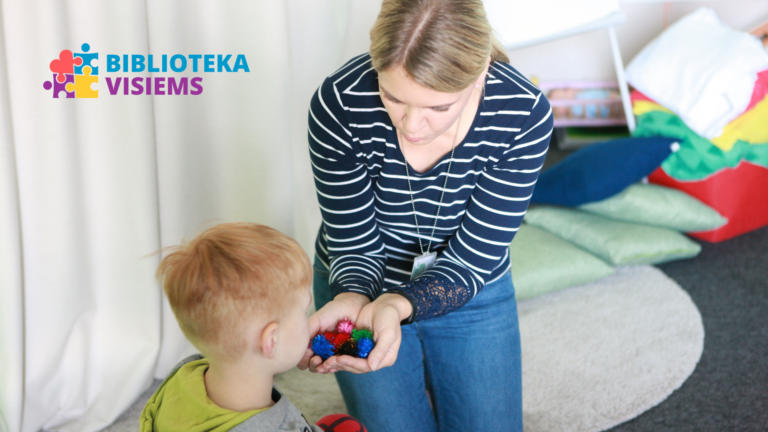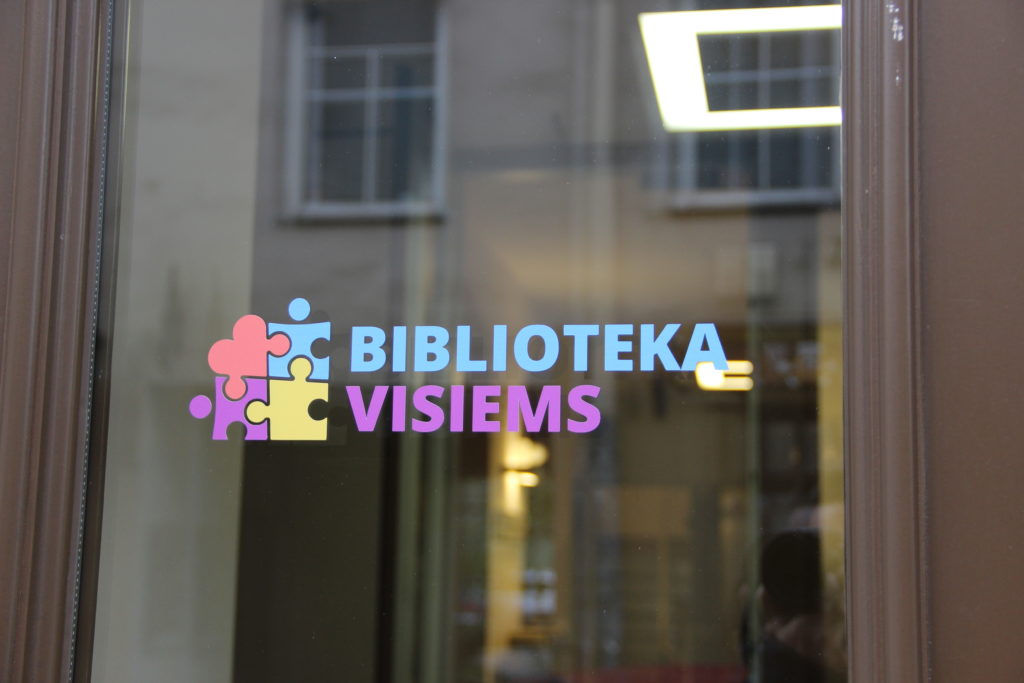Public libraries are public institutions and should be available to anyone. However, in reality – it is not always the case. Parents who have children with autism spectrum disorder often avoid public places because in most cases those places are not suitable for their children. But public libraries in Lithuania, including Panevėžys County Gabrielė Petkevičaitė-Bitė Public Library, say “Library is for everyone” and present a unique project implemented throughout the country.
Creating a safe environment for all individuals
Since November, the doors of Panevėžys County Gabrielė Petkevičaitė-Bitė Public Library and other Lithuanian public libraries have been decorated with a colorful logo “Library for everyone”. This is a sign that the library is becoming an even more open and friendly place for all individuals, despite their differences and diversity.
Many individuals with an autism spectrum disorder have an easier time processing information with visual cues. Using adapted text and pictures is key to familiarizing themselves with unknown environments and situations.
As of 2020 Lithuanian public libraries have social stories and posters that help visitors with autism spectrum disorder prepare for a visit to the library. The social stories that visitors will find on the library websites allow them to get acquainted with the library spaces, rules, and staff.
To help manage anxiety, calm down, and relax a special toolkit has been prepared for each of the public libraries. It consists of sensory-tent, tactile, audio, and visual aids. In addition, training for library staff on how to behave and help autistic children in the library have also been organized.
An example for all public institutions
In Lithuania, similarly to the rest of the world, the number of autism cases is increasing. The spectrum of autism is very wide, however, the most common problem areas are social interactions, sensory sensitivity, linguistic and non-linguistic communication. Still, research indicates that individuals with autism spectrum disorder identify the library as a great place to relax, educate, and spend quality time. In a recent survey, about 90 percent of families with autistic children said that they would visit libraries more often if they were more adapted to their needs.
The fact that Lithuanian libraries are becoming friendlier to this community is a big step forward, giving hope that other public institutions will follow this beautiful example.
The project “Implementation of a network of libraries friendly to people with autism spectrum and other language, communication and behavioral disorders” was financed by the Ministry of Culture of the Republic of Lithuania.








